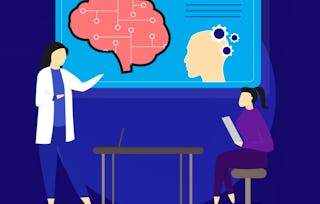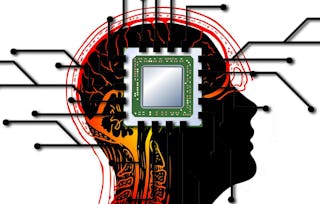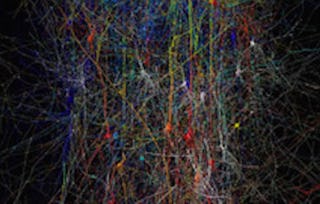This course provides an introduction to basic computational methods for understanding what nervous systems do and for determining how they function. We will explore the computational principles governing various aspects of vision, sensory-motor control, learning, and memory. Specific topics that will be covered include representation of information by spiking neurons, processing of information in neural networks, and algorithms for adaptation and learning. We will make use of Matlab/Octave/Python demonstrations and exercises to gain a deeper understanding of concepts and methods introduced in the course. The course is primarily aimed at third- or fourth-year undergraduates and beginning graduate students, as well as professionals and distance learners interested in learning how the brain processes information.

Computational Neuroscience
Seize the savings! Get 40% off 3 months of Coursera Plus and full access to thousands of courses.

1,139 reviews
Skills you'll gain
- Biology
- Probability Distribution
- Neurology
- Information Architecture
- Differential Equations
- Computational Thinking
- Physiology
- Statistical Methods
- Supervised Learning
- Mathematical Modeling
- Linear Algebra
- Network Model
- Reinforcement Learning
- Bioinformatics
- Artificial Neural Networks
- Computer Science
- Recurrent Neural Networks (RNNs)
- Machine Learning Algorithms
Tools you'll learn
Details to know

Add to your LinkedIn profile
9 assignments
See how employees at top companies are mastering in-demand skills

There are 8 modules in this course
Instructors


Offered by
Explore more from Machine Learning
 Status: Free Trial
Status: Free TrialJohns Hopkins University
 Status: Free Trial
Status: Free TrialJohns Hopkins University
 Status: Free Trial
Status: Free TrialUniversity of Colorado Boulder
 Status: Preview
Status: PreviewHebrew University of Jerusalem
Why people choose Coursera for their career

Felipe M.

Jennifer J.

Larry W.

Chaitanya A.
Learner reviews
- 5 stars
70.58%
- 4 stars
22.47%
- 3 stars
4.38%
- 2 stars
1.75%
- 1 star
0.79%
Showing 3 of 1139
Reviewed on Jul 12, 2017
A good look at mathematical models focusing mainly at the synapse and neuron level. The math came a little fast and furious for my 30+ years antique math training.
Reviewed on May 17, 2020
Excellent course! The field of comp neuro was brough to life by the instructors! The exercises really helped in understanding the content.
Reviewed on Jun 10, 2020
Brilliant course. For a HS student the math was challenging, but the quizzes and assignments were perfect. The tutorials and supplementary materials are super helpful. All in all, I loved it.

Open new doors with Coursera Plus
Unlimited access to 10,000+ world-class courses, hands-on projects, and job-ready certificate programs - all included in your subscription
Advance your career with an online degree
Earn a degree from world-class universities - 100% online
Join over 3,400 global companies that choose Coursera for Business
Upskill your employees to excel in the digital economy

